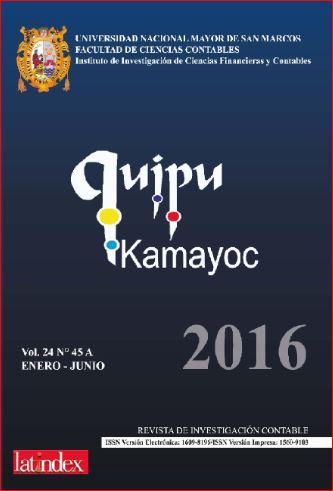PHILOSOPHICAL PERSPECTIVE OF ECONOMY
DOI:
https://doi.org/10.15381/quipu.v24i45.12467Keywords:
Qualitative, intellect, principles, doctrine, techniqueAbstract
In the dominated and fascinated by the contemporary art world the theme of philosophy and intellectuality play a role irrelevant and unattractive, particularly among youth.Following the hegemony of video games, social networks and everything that revolves around the Internet, the inner life and introspection have been displaced dramatically and that of course has serious consequences.In the case of the student to discover the vocation does not take much capacity for introspection, of inner life, because you have to penetrate the depths of consciousness and discover the treasure that is hidden in the depths of the soul.In this article, however, several reflections on the dimensions of human thought are tested preferably rescuing an approach to economic philosophy.One issue that may be particularly appealing to the reader is the critical analysis regarding economic policy and requirements in the sense that, quite often, analysis and policy proposals A first problem here is that relates to the discovery of the vocation that do not qualify are assumed to be made as to the quality of thought that must necessarily have philosophical and qualitative nature value principles.
Downloads
Downloads
Published
Issue
Section
License
Copyright (c) 2016 Luis Bortesi Longhi

This work is licensed under a Creative Commons Attribution-NonCommercial-ShareAlike 4.0 International License.
AUTHORS RETAIN THEIR RIGHTS:
a. Authors retain their trade mark rights and patent, and also on any process or procedure described in the article.
b. Authors retain their right to share, copy, distribute, perform and publicly communicate their article (eg, to place their article in an institutional repository or publish it in a book), with an acknowledgment of its initial publication in Quipukamayoc .
c. Authors retain theirs right to make a subsequent publication of their work, to use the article or any part thereof (eg a compilation of his papers, lecture notes, thesis, or a book), always indicating the source of publication (the originator of the work, journal, volume, number and date).





























